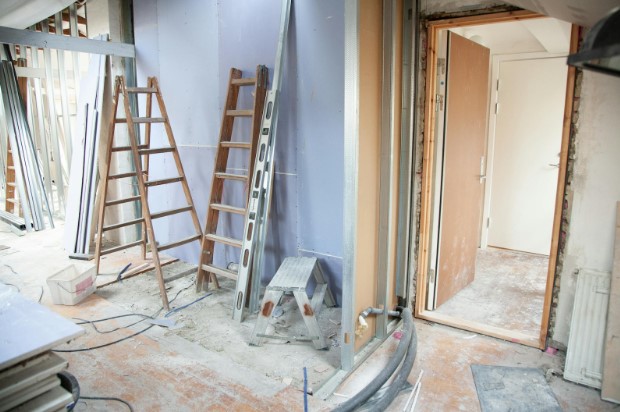Home renovation is a thrilling journey that can significantly enhance the functionality and aesthetic appeal of your living space. Whether you’re planning a minor upgrade or a major overhaul, understanding the key steps in the renovation process is crucial for a successful outcome. Proper planning, budgeting, and execution are all vital elements to ensure that your renovation project not only meets but exceeds your expectations. In this guide, we will walk you through the essential steps to take before, during, and after your renovation to help you achieve the home of your dreams.

Plan Your Renovation Project Thoroughly
Before diving into any renovation, meticulous planning is essential. Start by defining the scope of your project. Are you looking to update a single room, or are you planning a full home makeover? Creating a detailed plan will help you determine the resources you’ll need, including materials, labor, and time. It’s also helpful to establish clear goals for the renovation. For instance, if your primary objective is to increase the home’s resale value, focus on high-impact areas such as the kitchen or bathrooms.
Consulting with a professional designer or contractor can provide valuable insights and help refine your ideas. They can offer expert advice on design trends, materials, and structural changes, ensuring that your renovation aligns with both your vision and budget. Additionally, obtaining necessary permits and approvals from local authorities is a crucial step in the planning process. Ignoring these requirements can lead to costly delays and complications.
Set a Realistic Budget
A well-defined budget is one of the cornerstones of a successful renovation. Begin by estimating the total cost of your project, including materials, labor, and any additional expenses that may arise. Keep in mind that unexpected issues often surface during renovations, so it’s wise to allocate a contingency fund—typically around 10-15% of the total budget.
Breaking down your budget into categories such as demolition, construction, and finishing touches will help you keep track of expenses and avoid overspending. It’s also beneficial to get multiple quotes from contractors and suppliers to ensure that you’re getting competitive prices.
Choose Quality Materials
Selecting the right materials for your renovation is crucial for achieving a durable and aesthetically pleasing result. High-quality materials not only enhance the look of your home but also contribute to its longevity and value. When choosing materials, consider factors such as durability, maintenance requirements, and compatibility with your existing décor.
For example, if you’re renovating a bathroom, opting for water-resistant materials such as ceramic tiles or high-quality acrylic can ensure that the space remains functional and visually appealing for years to come. When researching options, you might explore services like Edmonton bathroom renovations to find local experts who can provide additional recommendations and installation services. Investing in high-quality materials not only improves your home’s appearance but also ensures that your renovation withstands the test of time.
Hire the Right Professionals
Choosing the right professionals to execute your renovation is crucial for a smooth and successful project. Research potential contractors, designers, and specialists thoroughly. Look for those with a proven track record, positive reviews, and appropriate licensing and insurance. Don’t hesitate to ask for references and examples of previous work.
A clear and detailed contract is essential when hiring professionals. This document should outline the scope of work, timeline, payment schedule, and any warranties or guarantees. Having a well-defined agreement helps protect both parties and ensures that everyone is on the same page.
Manage the Renovation Process
Effective management of the renovation process involves maintaining open communication with your contractors and monitoring progress regularly. Schedule periodic site visits to ensure that the work is proceeding according to plan and that any issues are addressed promptly. Keeping a close eye on the project helps you stay informed and make adjustments if necessary.
Additionally, be prepared for some level of disruption to your daily routine during the renovation. Whether it’s noise, dust, or restricted access to certain areas of your home, managing these inconveniences with patience and flexibility will help reduce stress and keep the project on track.
Finalize and Inspect
Once the renovation is nearing completion, conduct a thorough inspection to ensure that all work meets your expectations and adheres to agreed-upon standards. Check for any deficiencies or unfinished tasks and address them with your contractor before making the final payment. It’s also a good idea to test all new installations, such as plumbing fixtures and electrical systems, to ensure they function properly.
After addressing any final touches, take some time to enjoy your newly renovated space. Assess how well the updates meet your initial goals and consider any additional adjustments or improvements. Completing a renovation is a significant achievement, and celebrating your success can provide a satisfying end to the project.

Renovating your home can be a rewarding experience that transforms your living space into a more functional and beautiful environment. By following these essential steps—careful planning, setting a realistic budget, selecting quality materials, hiring the right professionals, managing the process effectively, and conducting a thorough final inspection—you can ensure a successful renovation that enhances both your home and your quality of life. With proper preparation and attention to detail, your renovation project can deliver lasting benefits and a home that you’ll love for years to come.






